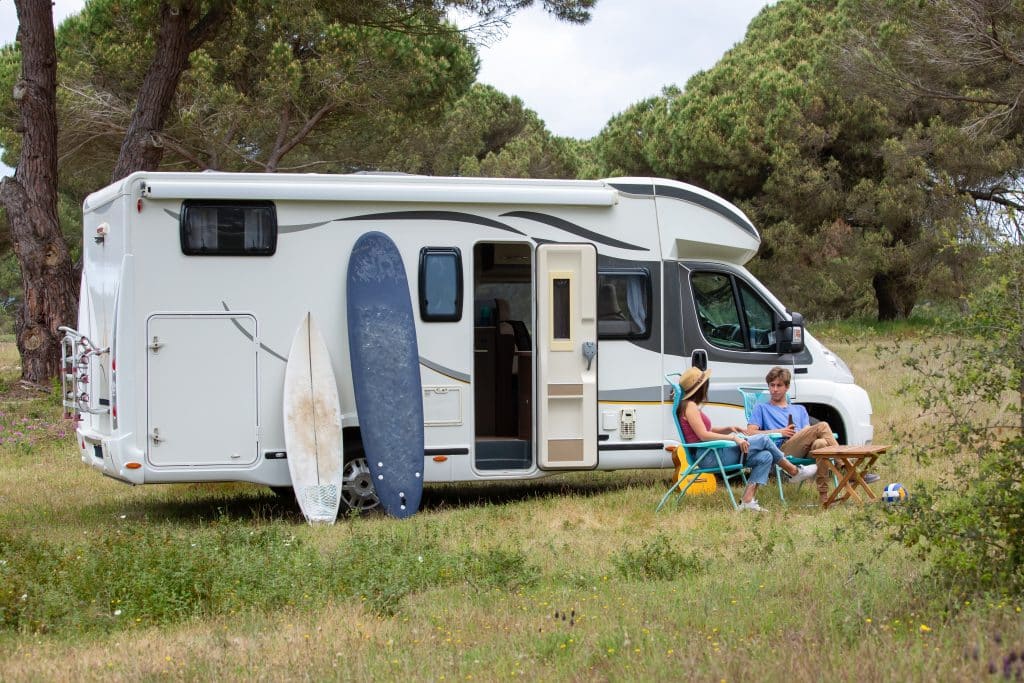Finding the ideal car storage unit can be a difficult task. Whether you want to store a vintage collectible or simply need a place to keep your daily driver during a long trip, one question always remains “What size should I get?” So we’ve written a detailed guide to determining the best size storage unit for your vehicle.
Table of Contents
What Exactly Are Vehicle Storage Units?
Car storage units are dedicated spaces specifically designed to safely store vehicles. They shield your vehicle from harsh weather, theft, and damage. This makes them ideal for car enthusiasts, seasonal drivers, and long-term travelers.
These units vary greatly in size and features so before getting one you should be aware of your vehicle’s dimensions and what make the vehicle is. These two things will help you get the right storage unit while minimizing the cost. Now if your vehicle is expensive or perhaps a gift from someone then we would suggest that you get a storage unit because it will protect your car from any kind of harm.
Types of Storage Units For Cars
Compact Car Storage

Compact automobiles can be up to 180 inches or 4.5 meters long. Because these cars are smaller in size, they’re easier to store. The best storage unit size for this category is 10×15 feet mainly because it provides sufficient space for the vehicle.
This allows for a few more feet of maneuverability and additional storage of car-related items such as spare tires, a toolbox, and cleaning supplies for your car.
Pros and Cons of Compact Car Storage
Pros:
- More economical due to the smaller unit size.
- Easier to move the car in and out of the unit.
- Extra space for storing additional items like spare tires or tools.
Cons:
- Difficult to accommodate larger cars.
- Limited room for extensive car care or maintenance within the unit.
Mid-Size Car Storage

Mid-size cars, including most sedans, range in length from about 180 to 194 inches (4.5 to 5 meters) so a 10×20 feet storage unit is usually a good choice for these types of cars. Additionally, this unit provides adequate space for your car with some room left for other items.
Pros and Cons of Mid-Size Car Storage
Pros:
- Ample room to fit most sedans comfortably.
- Extra space for car-related items and minor vehicle maintenance.
Cons:
- More costly than compact car storage units.
- May be oversized for smaller vehicles.
Looking to move soon?
Check out UniMovers and save 30-50% on your move as compared with traditional moving!
Full-Size Car Storage

Full-size cars including SUVs and trucks are usually a bit complicated to store due to the larger size. They measure between 195 to 210 inches (about 5 to 5.5 meters) in length so a storage unit measuring 10×25 feet is recommended for these types of vehicles.
Pros and Cons of Full-Size Car Storage
Pros:
- Provides plenty of space for larger vehicles.
- Extra space for maintenance, detailing, and storing additional items.
Cons:
- Most expensive due to larger size.
- Might be unnecessary for smaller cars.
Special Vehicle Storage

Special vehicles usually include boats, RVs, and even ATVs. They can also consist of sports bikes.
But the question is, what kind of storage unit would this category require? Well, to answer this you’ll have to compare the dimensions of all the other categories we’ve discussed and then decide on which kind of storage unit you need to go for. Some storage providers even have separate storage units for special vehicles.
Indoor Vs Outdoor Storage Units: Which One Is Better?
Indoor and outdoor storage units each have their own set of advantages, and the choice is largely determined by your requirements, vehicle type, location, and budget. If protecting your vehicle from extreme weather conditions is your primary concern you should automatically go with indoor storage units that provide unmatched protection.
These units usually provide a climate-controlled environment that can prevent damage caused by temperature fluctuations, humidity, and severe weather conditions such as rain, snowstorms, and leaks. Outdoor storage units, on the other hand, provide a cost-effective solution, particularly for larger vehicles such as RVs and boats that may not fit in conventional indoor units.
These units provide some weather protection, but they can’t compete with the comprehensive coverage provided by indoor units. Outdoor units will be sufficient if you live in an area with mild weather.
The choice between indoor and outdoor units largely depends on what your budget is and how you value the vehicle. If it’s something that can’t fit in an indoor unit then you’re obviously going to need to get an outdoor storage unit. But if it’s a luxury vehicle an indoor unit would be the best choice.
Wrap Up
Choosing the best storage facility is an investment in the care and maintenance of your car and it’s worthwhile to spend time researching different options.
Whatever size storage unit you eventually choose, the most important thing is that it serves its purpose- protecting your vehicle and giving you peace of mind.
FAQs
The size of your car usually determines how much space you’re going to require for storage. A standard garage for a single vehicle has an area of between 10 and 15 square feet in size.
Although most vehicles will fit, heavier trucks and SUVs will definitely need a larger parking place. You should also search for a storage unit that is at least double the size of a single-car garage if you plan to store two average-sized cars.
Keep in mind that you’ll need some breathing room within the storage unit itself so it’s always a good decision to measure your vehicle’s dimensions to make sure that the space you’re paying for is enough to walk around and park your vehicles.
The normal car won’t fit in a 10×10. This size is just about right for storing furniture and belongings from a studio or one-bedroom apartment out of the way.
A 10×15 unit is usually the bare minimum for storing a car, while a 10×20 unit is preferable because it allows for some breathing room around the vehicle as well as some more space for boxes and other items. The size of the storage space needed will vary depending on the vehicle in question.
A 10×15 space may be adequate for a smaller car, but an SUV or truck would require a 10×20 space or greater.

Ashlyn is a homegrown Iowan (go Cyclones!). She graduated from Coe College in Cedar Rapids, Iowa in 2023 with a degree in Business Administration, Marketing, Public Relations, and Communications. Now, she serves as UniMovers' Community Outreach Manager. In her free time, she loves to try new restaurants, travel, watch baseball, and spend time with her dog!
To get in contact with her regarding blog partnerships at UniMovers please email blog@unimovers.com.





